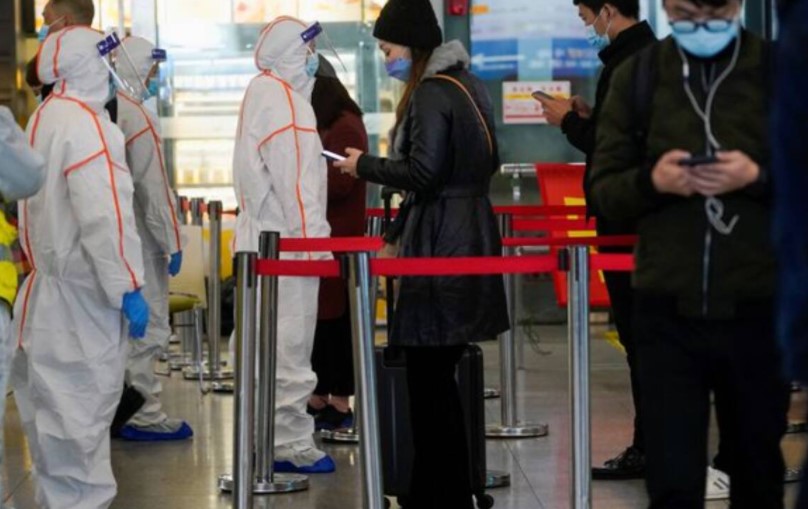The new variant has multiple mutations that suggest an increased risk of reinfection. Cases of infection with Omicron are increasing in South Africa, the first country to report it. The world health agency urges countries and the overall population to keep up proven public health measures, advising against travel restrictions, a provision adopted by the European Union.
The World Health Organization (WHO) announced on Friday that the new variant of SARS-CoV-two, which it referred to as Omicron, is “of concern ” in read of the big variety of mutations it presents.
The Technical Advisory Group on the Evolution of the SARS-CoV-a pair of Virus held an extraordinary meeting before the discovery of the new variant, the primary sample of that was collected on November nine in South Africa, a country that notified the WHO on the twenty fourth. .
The Group’s consultants indicated that Omicron shows multiple mutations, a number of that counsel a higher risk of reinfection than different variants that are of concern.
The WHO warned that the amount of cases of Omicron is increasing in nearly all the provinces of South Africa, where the vaccination rate is low, which it’s been detected at rates faster than previous surges in infection, that suggests which may have a growth advantage.
Recommendations to countries
Within the face of the event, WHO asked countries:
Improve surveillance and sequencing efforts to higher understand circulating SARS-CoV-2 variants
Submit complete genomic sequences and associated metadata to a publicly obtainable database
Report Cases Associated with Variant Infection of Concern
Conduct field investigations and laboratory evaluations (where capability exists ) to boost understanding of the potential impacts of the variant on COVID-19 epidemiology , severity, effectiveness of public health and social measures, methods of diagnosis, immune responses, antibody neutralization, or alternative relevant options
Do not discriminate or prohibit travel
The WHO underscored the willingness of South Africa and Botswana, who provided it with timely and open info concerning the finding.
Likewise, he urged the international community not to discriminate against countries that share their info in an exceedingly clear manner.
The first governments to cancel direct flights to those African countries were Britain, France and Israel. Later, the Member States of the European Union joined the measure, adding Eswatini, Lesotho, Mozambique, Namibia and Zimbabwe to the list.
Proven measures
The overall population was asked by the WHO to take care of proven public health measures, like wearing well-fitting masks, laundry hands frequently, respecting physical distancing, improving ventilation of indoor areas, avoiding crowded spaces and obtaining vaccinated.
On the other hand, in the face of the travel bans and restrictions agreed today by the European Union and therefore the African nations where Omicron has been detected, the WHO urged governments to make decisions based on science , underlining that info on the new mutation continues to be restricted.
The lead epidemiologist of the agency, Maria Van Kerkhove, explained that there are less than 100 sequences of the whole genome, so not a lot of is understood regarding the topic however.
“But what we do grasp is that this variant encompasses a massive variety of mutations and the concern is that when there are so many mutations, they can impact the behavior of the virus, ” said Dr. Van Kerkhove throughout a matter and answer session on Twitter.
He added that scientists are making an attempt to see where the mutations are and what impact they’ll have on COVID-19 diagnosis, treatments and vaccines .
The expert warned that it will take many weeks to perceive the impact of this new variant of the coronavirus.

